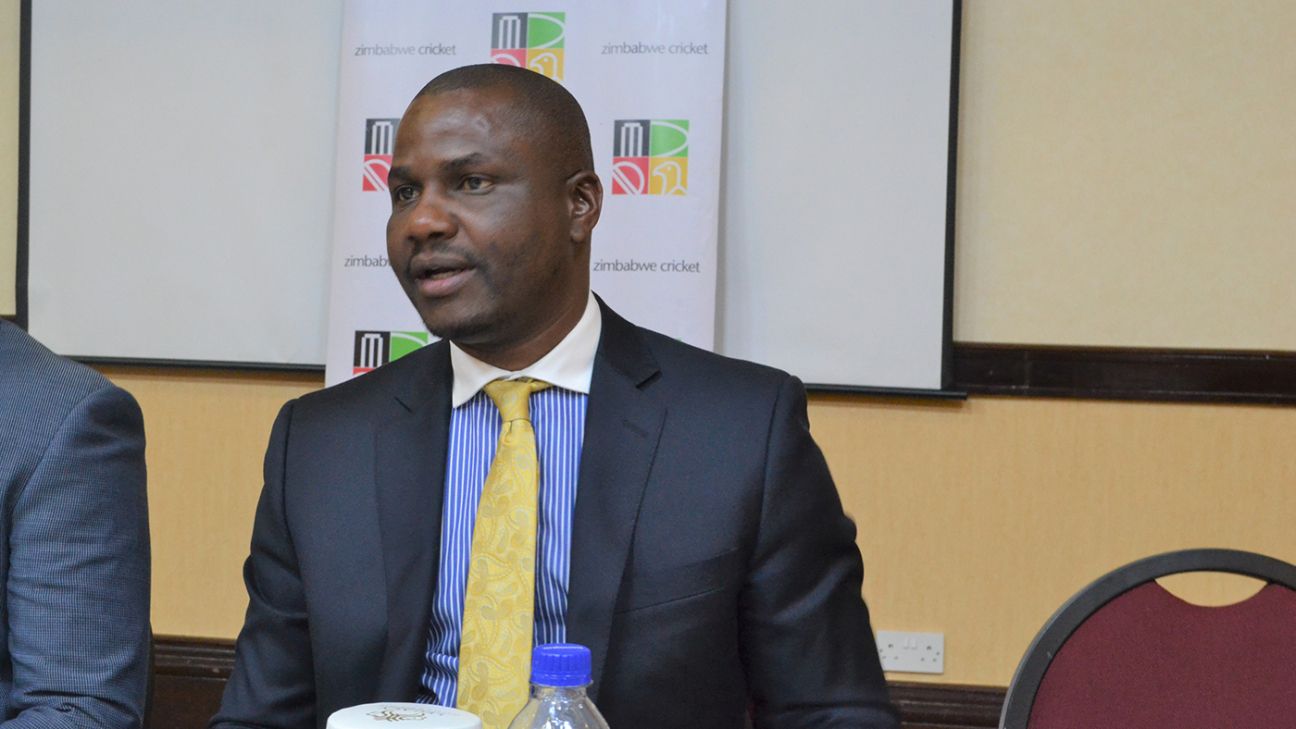Tavengwa Mukuhlani has been re-elected as chairman of Zimbabwe Cricket (ZC) for another term. But his election has put ZC in direct conflict with the Sports and Recreation Commission, a government parastatal that ostensibly oversees all sporting bodies in the country, which issued a directive that ZC’s Elective Annual General Meeting – at which Mukuhlani’s tenure was extended – be suspended.
In a letter sent to ZC’s acting managing director Givemore Makoni – and seen by ESPNcricinfo – SRC director general Prince Mupazviriho ordered the suspension of ZC’s electoral process “until further notice”. But ZC went ahead with its elective AGM – a move that would meet with the backing of the ICC, whose constitution specifically prohibits such government interference in board affairs.
The SRC’s letter gave several reasons for the suspension, alleging complaints about the nomination process and the violation of ZC’s constitution. It also detailed a new forensic audit report commissioned by the SRC to:
-
“Conduct objective and independent investigations of all matters brought to its attention involving financial misconduct, irregularities of a financial nature and the commission of economic offenses.”
-
“Determine the total revenue and examine the authenticity of all the expenditure incurred for the respective years of 2015, 2016 and 2017.”
-
“Ascertain receivable and/or payables related to the years in question for Zimbabwe Cricket.
-
“Assess allegations of theft, fraud and corruption.”
“In light of all these and various other controversies relating to Zimbabwe Cricket and its financial and governance structures, the SRC, as resolved by the board hereby directs that all or any electoral processes including any electoral AGM for a new Board of Directors forthwith be suspended until further notice,” the letter reads.
Had ZC bowed to the pressure and stopped the meeting from going ahead, Zimbabwe may well have been in danger of suspension from the ICC. In 2016, the ICC suspended the Cricket Association of Nepal because of government interference in the running of the board. The ICC regarded the actions of the Nepalese National Sports Council to be in breach of Article 2.9 of the ICC’s Articles of Association, which prohibits government interference and requires free and fair elections.
According to Section 2.4 (D) of the ICC constitution, every member must “manage its affairs autonomously and ensure that there is no government (or other public or quasi-public body) interference in its governance, regulation and/or administration of Cricket in its Cricket Playing Country.”
Furthermore, according to Section 2.10 (A), the ICC board of directors “may suspend the membership of a Member with immediate effect where, in the opinion of the Board of Directors (in its absolute discretion), the Member is in serious breach of any of its obligations as a Member.”
While ZC’s actions may be in line with the ICC’s constitution, they will undoubtedly cause further friction with the SRC. The SRC’s letter warned that, should ZC disregard its directive to suspend the elective AGM, it would invoke Section 30 of the SRC Act, which gives the SRC power to suspend ZC members and employees from their positions, strike the board from the national register, and appoint its own committee to run the affairs of the concerned association.
The attempted suspension of ZC’s elective AGM was one of the first actions of the new SRC board, which was reformed at the beginning of June, having been dissolved by sports minister Kirsty Coventry in September last year. The new SRC board is headed by Gerald Mlotshwa, a lawyer who represented former national coach Heath Streak in his defamation case against Mukuhlani – which has since been dropped – and who was also involved in the short-lived attempt by Zimbabwe’s professional cricketers to set up a players’ union last year.
It remains to be seen what move the SRC will make next, but as things stand Mukuhlani will be ZC’s board chairman for another four years, his tenure being extended by a unanimous vote. Sylvester Matshaka was also retained as Mukuhlani’s deputy, while former Zimbabwe cricketer Ed Rainsford is among the five new faces on the 13-member board.

